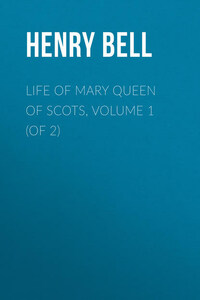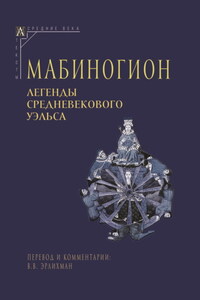CHAPTER I.
THE PROPOSAL OF A DIVORCE BETWEEN MARY AND DARNLEY, AND THE CHRISTENING OF JAMES VI
It was in December 1566, during Mary’s residence at Craigmillar, that a proposal was made to her by her Privy Council, which deserves particular attention. It originated with the Earl of Bothwell, who was now an active Cabinet Minister and Officer of State. Murray and Darnley, the only two persons in her kingdom to whom Mary had been willing to surrender, in a great degree, the reins of government, had deceived her; and finding her interests betrayed by them, she knew not where to look for an adviser. Rizzio had been faithful to her, and to him she listened with some deference; but it was impossible that he could ever have supplied the place of a Prime Minister. The Earl of Morton was not destitute of ambition sufficient to have made him aspire to that office; but he chose, unfortunately for himself, to risk his advancement in espousing Darnley’s cause, in opposition to the Queen. Both, in consequence, fell into suspicion; Morton was banished from Court, and Murray again made his appearance there. But, though she still had a partiality for her brother, Mary could not now trust him, as she had once done. Gratitude and common justice called upon her not to elevate him above those men, (particularly Huntly and Bothwell), who had enabled her to pass so successfully through her recent troubles. She made it her policy, therefore, to preserve as nice a balance of power as possible among her ministers. Bothwell’s rank and services, undoubtedly entitled him to the first place; but this the Queen did not choose to concede to him. The truth is, she had never any partiality for Bothwell. His turbulent and boisterous behaviour, soon after her return from France, gave her, at that period, a dislike to him, which she testified, by first committing him to prison, and afterwards ordering him into banishment. He had conducted himself better since his recall; but experience had taught Mary the deceitfulness of appearances; and Bothwell, though much more listened to than before, was not allowed to assume any tone of superiority in her councils. She restored Maitland to his lands and place at Court, in such direct opposition to the Earl’s wishes, that, so recently as the month of August (1566), he and Murray came to very high words upon the subject in the Queen’s presence. After Rizzio’s murder, some part of Maitland’s lands had been given to Bothwell. These Murray wished him to restore; but he declared positively, that he would part with them only with his life. Murray, enraged at his obstinacy, told him, that “twenty as honest men as he should lose their lives, ere he saw Lethington robbed;” and through his influence with his sister, Maitland was pardoned, and his lands given back.1 Thus Mary endeavoured to divide her favours and friendship among Murray, Bothwell, Maitland, Argyle the Justice-General, and Huntly the Chancellor.
It was in this state of affairs, when the contending interests of the nobility were in so accurate an equilibrium, that Bothwell’s daring spirit suggested to him, that there was an opening for one bold and ambitious enough to take advantage of it. As yet, his plans were immatured and confused; but he began to cherish the belief that a dazzling reach of power was within his grasp, were he only to lie in wait for a favourable opportunity to seize the prize. With these views, it was necessary for him to strengthen and increase his resources as much as possible. His first step was to prevail on Murray, Huntly, and Argyle, about the beginning of October, to join with him in a bond of mutual friendship and support;2 his second was to lay aside any enmity he may have felt towards Morton, and to intimate to him, that he would himself petition the Queen for his recall; his third and boldest measure, was that of arranging with the rest of the Privy Council the propriety of suggesting to Mary a divorce from her husband. Bothwell’s conscience seldom troubled him much when he had a favourite end in view. He was about to play a hazardous game; but if the risk was great, the glory of winning would be proportionate. Darnley had fallen into general neglect and odium; yet he stood directly in the path of the Earl’s ambition. He was resolved that means should be found to remove him out of it; and as there was no occasion to have recourse to violence until gentler methods had failed, a divorce was the first expedient of which he thought. He knew that the proposal would not be disagreeable to the nobility; for it had been their policy, for some time back, to endeavour to persuade the nation at large, and Mary in particular, that it was Darnley’s ill conduct that made her unhappy, and created all the differences which existed. Nor were these representations altogether unfounded; but the Queen’s unhappiness arose, not so much from her husband’s ingratitude, as from the impossibility of retaining his regard, and at the same time discharging her duty to the country. Though the nobles were determined to shut their eyes upon the fact, it was nevertheless the share which they held in the government, and the necessity under which Mary lay to avail herself of their assistance, which alone prevented her from being much more with her husband, and a great deal less with them. There were even times, when, perplexed by all the thousand cares of greatness, and grievously disappointed in the fulfilment of her most fondly cherished hopes, Mary would gladly have exchanged the splendors of her palace for the thatched roof and the contentment of the peasant. It was on more than one occasion that Sir James Melville heard her “casting great sighs, and saw that she would not eat for no persuasion that my Lords of Murray and Mar could make her.” “She is in the hands of the physicians,” Le Croc writes from Craigmillar, “and is not at all well. I believe the principal part of her disease to consist in a deep grief and sorrow, which it seems impossible to make her forget. She is continually exclaiming “Would I were dead!”









